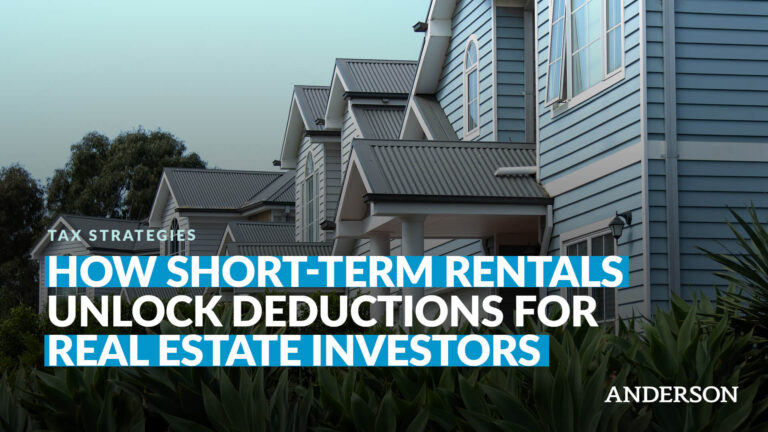Updated September 29, 2021
Choosing a legal entity for your real estate investment business is an important decision that has both legal and tax consequences. The wealthiest real estate investors are not just skilled at spotting a good investment or closing a deal—they are knowledgeable and savvy about all aspects of their business, including the way it is legally organized and operated.
Your wealth as a real estate investor is held predominantly in the hard assets of the residential and/or commercial real estate you own. To protect your business, you must focus on protecting those assets, as well as your personal assets that are separate from the business. The legal entity you choose for your business will play a vital role in the level of asset protection you have.
Whether you are just starting your real estate investment business or you are considering restructuring your existing business for more legal and tax benefits, you must consider several factors including the extent of your personal assets, your debt-to-income ratio, the tax laws in your state, and contributions from other investors.
One type of legal structure that many of the most successful real estate investor opt for is the LLC and LP hybrid. To better understand what an LLC and LP hybrid is and why it might be the best choice for your real estate investment business, we will first explore all of the options you have available when choosing a legal entity for your business. Note that every real estate investment business should consult a CPA and attorney to assess their individual circumstances and determine the best structure for their business.
Sole Proprietorships for Real Estate Investing
A sole proprietorship is kind of a “default” business structure, which is formed when a person is engaging in business in their individual capacity, without having formed a separate legal entity. The assets and income of the business are entirely owned by the individual and all income from the business is taxed as personal income.
Unlike other legal entities where business income “passes through” the business to the individual, all income from the business is considered immediately earned by the sole proprietor. All property purchased by, transferred to, and owned by the business is simply owned by the sole proprietor personally.
The advantages of this business structure are that it is very easy to start. No paperwork is required to form a sole proprietorship. As a real estate investor, you simply purchase or invest in real estate. Depending on the laws in your state, there may be a requirement to register your sole proprietorship, but this registration does not create your sole proprietorship, it simply is a requirement to comply with state law. Your sole proprietorship is created automatically, by default, when you start doing business.
If you choose to use a trade name to conduct business, rather than your legal name, you may need to file a “Doing Business As” (DBA). You also do not need to file taxes separately for your business. You simply include business income and deductions in your personal income tax return.
However, if you are a real estate investor there are major disadvantages to operating your investment business as a sole proprietorship. First, unlike other entity options, a sole proprietorship offers no degree of asset protection from creditors or lawsuits, because your business assets are also personal assets. Furthermore, depending on your debt-to-income ratio and how you choose to finance your investments, you may be able to begin as a sole proprietor, but if and when you exceed the debt-to-income ratio permitted by your lender, you will have to form a separate legal entity to obtain commercial financing.
LLC
A limited liability company (LLC) is a common entity choice for real estate investors and offers many advantages. Choosing this structure for your real estate investment business allows you to limit your personal liability in the business to the money you contribute and the debts you co-sign for. This includes personal assets that you contribute as collateral to a loan.
In an LLC, owners are known as “members”. If you are the only owner in your real estate LLC, you have a single-member LLC. In a single member LLC, all business income will “pass through” the entity and be treated as personal income for tax purposes. However, you will not be personally liability for the debts, claims, and liabilities of the business, beyond the amount you contribute. To form an LLC, you must file Articles of Organization with your appropriate state government authority.
Protection for your personal assets in an LLC is not absolute and a court will overlook the LLC structure and hold you responsible for claims against the business if certain conditions are present. Specifically, if a court finds that: (1) there is a “unity of interests” between you as an individual and the LLC; and (2) it is necessary to look past the LLC structure to prevent fraud or injustice, they will do so. This is called “piercing the corporate veil”. Examples of factors pointing toward a “unity of interests” include commingling personal and business funds or evidence that the LLC is a sham entity. In addition to finding a unity of interests, in order to “pierce the corporate veil” and disregard the protections an LLC typically affords, the court must find that doing so is necessary to stop the sham entity from committing or furthering fraud or injustice.
LP
A limited partnership (LP) is a legal entity that involves at least two parties: a general partner and a limited partner. In an LP, the general partner is responsible for all debts, judgments, and liabilities of the business and a limited partner is only responsible up to their investment in the business. The flip side of this advantage for limited partners is that the general partner retains all management control and the control of limited partners is usually limited to major decisions that require a vote.
LPs are a popular choice for real estate development businesses that will require a lot of outside investments. This model allows investors to serve as limited partners, with their personal assets completely protected from the business’s liabilities. Though they lack managerial powers, capital investors do not generally intend to be involved in the business on a day-to-day level.
From a financial and legal perspective, there are advantages and disadvantages to this structure. In an LP, limited partners do not pay SECA tax (Self-Employed Contributions Act) on their income. However, depending on your state, an LP can be expensive to set up. Furthermore, while the personal assets of limited partners are protected, general partners are completely exposed to and responsible for all of the business’s debts, claims, judgments, and liabilities.
LP and LLC Hybrid
An alternative option for structuring a real estate investment business is an LP/LLC hybrid. In this structure, real estate assets are owned by an LP, consisting of one or more limited partners and a general partner.
The LLC serves as the general partner and is responsible for the day-to-day operations of the business. It is also responsible for claims against the business, providing an added layer of asset protection to you or investors, serving as limited partners. In other words, the general partner is liable for all of the business’s debts and a limited partner is responsible only for the amount they have invested into the business.
However, in this hybrid structure, the general partner is an LLC, which inherently affords protections for personal assets of its members. When the protection of an LP is combined with the personal asset protection afforded by an LLC (acting as general partner in an LP/LLC hybrid), it can be a very beneficial choice for a real estate investor when selecting a legal structure for their business, particularly in states that impose a capital stock tax.
However, this hybrid approach also creates the hassle of extra paperwork and separate tax filings. Whether an LP/LLC hybrid structure is the best choice for your real estate investment business is heavily dependent on your particular portfolio and the applicable tax laws in your state.

How do you know which structure is best for your business?
When making the decision of how to structure your real estate investment business it is wise to speak with both a CPA and an attorney. The CPA will be able to look at your overall financial situation to provide advice on which structure is most advantageous for you from a tax perspective, in light of your potential overall tax liability under federal and state laws.
You should also consult an attorney, who can help you determine your legal liability risk. An attorney will also provide you with advice on how to best protect your personal assets from creditors, judgments, and other liabilities. Seeking the advice of both tax and legal professionals will provide you will a holistic view of your unique circumstances that will inform which legal entity is the best structure for your real estate investment business.
The legal, business, and tax professionals at Anderson Advisors would be happy to discuss your current circumstances and investment goals with you to help you decide how to best organize your business. Contact us today for a consultation at 800-706-4741
Bonus Video
Free Strategy Session with an Anderson Advisor
Receive a detailed risk assessment to assist in lowering problem areas that could wipe out all of your assets with one wrong move. Speak with an Anderson Professional Advisor to get your FREE Strategy Session.
Limited-Time Offer: ($750 value.)
















